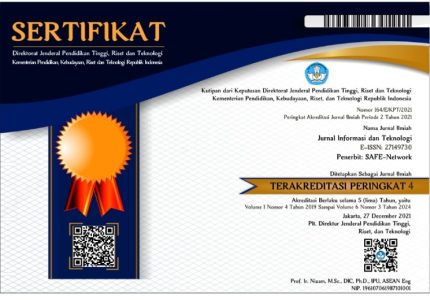Overview of Business Technology Management Careers
Business Technology Management (BTM) careers offer a dynamic blend of business expertise and technological skills, preparing professionals to bridge the gap between IT and business strategies. These roles are vital in today’s digital world, where organizations rely heavily on technology to achieve their goals. Careers in BTM can lead to diverse opportunities in project management, systems analysis, IT consulting, and digital transformation leadership, making it an exciting choice for those interested in shaping the future of business through innovative technology solutions.
Definition and Scope
Business Technology Management (BTM) careers focus on aligning technology strategies with business goals to improve organizational performance. BTM professionals analyze, design, and implement technological solutions that support business processes and drive innovation.
The scope of BTM careers encompasses a wide range of roles including IT project managers, business analysts, technology consultants, and enterprise architects. These professionals work closely with business stakeholders to identify needs, develop technology roadmaps, and oversee the execution of digital initiatives.
- Understanding business requirements and translating them into technological solutions
- Managing IT projects from initiation to completion
- Evaluating emerging technologies for potential business applications
- Ensuring security and compliance within technological frameworks
- Leading digital transformation efforts to enhance competitiveness
Key Responsibilities and Roles
Business Technology Management (BTM) careers focus on aligning technology strategies with business goals to improve organizational performance. Professionals in this field bridge the gap between IT and business departments, ensuring that technological investments support overall business objectives.
Key Responsibilities and Roles in Business Technology Management Careers
- Developing and implementing technology strategies that align with business goals
- Managing IT projects, budgets, and resources to ensure successful delivery
- Analyzing business processes to identify opportunities for technological improvements
- Collaborating with stakeholders to understand their needs and translate them into technical solutions
- Ensuring the security and compliance of technological systems
- Evaluating emerging technologies and recommending their adoption
- Leading cross-functional teams to execute technology initiatives
- Monitoring system performance and implementing necessary upgrades or fixes
- Providing training and support to staff on new technologies and systems
Educational Pathways and Qualifications
Educational pathways and qualifications play a crucial role in shaping careers in business technology management. As this field combines elements of business administration and information technology, relevant education and certifications are essential for aspiring professionals. Understanding the various levels of qualifications can help individuals navigate their journey into this dynamic and evolving industry.
Relevant Degree Programs
Business technology management careers require a solid educational foundation in both business principles and technological skills. Relevant degree programs often encompass a combination of business administration, information systems, and management technology to prepare students for roles that bridge the gap between business needs and technological solutions.
Common degree pathways include Bachelor’s programs in Business Technology Management, Information Systems, or Management Information Systems. These programs typically cover topics such as project management, data analytics, enterprise systems, and IT strategy, providing students with a comprehensive understanding of how to leverage technology for business success.
Advanced qualifications, such as a Master’s in Business Administration with a focus on Technology Management or a Master’s in Information Systems, can enhance career prospects and leadership opportunities in this field. Certifications like Certified Management of Technology (CMOT) or Project Management Professional (PMP) can also be valuable for professional development in business technology management careers.
Overall, pursuing relevant degree programs and qualifications in this domain equips individuals with the skills necessary to manage and innovate within the evolving intersection of business and technology.
Professional Certifications
Career progression in business technology management increasingly relies on a combination of specialized educational pathways and professional certifications. Aspiring professionals often pursue degrees in fields such as Business Administration, Information Technology, or Management to build a strong foundational knowledge. Advanced qualifications like a master’s in Business Technology or an MBA with a focus on technology management can further enhance career prospects. In addition, earning industry-recognized certifications such as Project Management Professional (PMP), Certified Information Systems Security Professional (CISSP), or Certified Business Technology Manager (CBTM) can demonstrate expertise and commitment to the field. These credentials help professionals stay current with evolving technologies and industry standards, ultimately supporting their advancement into leadership roles within business technology management.
Skills and Competencies
Educational pathways and qualifications are essential for pursuing a career in business technology management. Typically, a bachelor’s degree in business administration, information technology, or related fields is required, with many professionals also obtaining higher degrees such as a master’s in business administration or technology management to enhance their prospects. Relevant certifications like PMP, ITIL, or CISSP can further demonstrate expertise and commitment to the field.
Skills and competencies vital for success in business technology management include strong leadership and strategic thinking abilities, excellent communication skills, and a solid understanding of both business processes and technological systems. Analytical skills, problem-solving capabilities, and proficiency in project management are also crucial. Additionally, adaptability and continuous learning are important to stay updated with rapid technological advancements and evolving business environments.
Career Opportunities in Business Technology Management
Business Technology Management (BTM) offers a dynamic and evolving landscape for professionals interested in bridging the gap between business strategy and technological innovation. As organizations increasingly rely on digital solutions to stay competitive, careers in BTM provide excellent opportunities for growth, specialization, and impact. Whether in consulting, IT management, or strategic planning, a career in BTM equips individuals with the skills to drive digital transformation and contribute to business success.
Entry-Level Positions

Careers in Business Technology Management (BTM) offer a dynamic and evolving landscape for professionals interested in integrating business strategies with technological solutions. Entry-level positions in this field typically include roles such as Business Analyst, IT Support Specialist, and Junior Project Coordinator. These positions provide foundational experience in understanding business processes, managing technology projects, and supporting IT infrastructure. As businesses increasingly rely on digital innovations, starting a career in BTM allows individuals to develop essential skills in data analysis, systems management, and strategic planning. Entry-level roles serve as a stepping stone for advanced positions in technology management, consulting, or enterprise architecture, making BTM a promising career pathway for aspirants eager to blend technical expertise with business insight.
Mid-Level Management Roles
Career opportunities in Business Technology Management (BTM) at the mid-level management stage offer a dynamic and rewarding pathway for professionals looking to bridge the gap between business strategies and technological solutions. These roles typically involve overseeing technological projects, aligning IT initiatives with organizational goals, and managing teams responsible for implementing innovative systems. Skills in project management, strategic planning, and a strong understanding of emerging technologies are essential for success in these positions.
Mid-level managers in BTM often hold titles such as IT Manager, Business Technology Manager, or Technology Project Lead. They play a crucial role in coordinating between executive leadership and technical teams to ensure that technological assets support business growth. These roles also provide opportunities to develop leadership skills, contribute to digital transformation initiatives, and influence organizational competitiveness in an increasingly technology-driven market.
With the rapid evolution of technology, professionals at this level can expect continued growth prospects, higher earning potential, and the chance to specialize in areas like cybersecurity, data management, or enterprise architecture. Building a versatile skill set and gaining relevant certifications can further enhance career advancement in this exciting field.
Senior Leadership and Executive Positions
Business Technology Management (BTM) careers offer a dynamic pathway for professionals aiming to ascend into senior leadership and executive roles within organizations. These positions require a combination of strategic thinking, technical expertise, and strong leadership abilities, making them highly sought after in today’s digital-driven business environment.
Senior leadership roles in BTM include titles such as Chief Information Officer, Chief Technology Officer, and Director of Digital Transformation. These professionals are responsible for aligning technology strategies with business objectives, overseeing major technology initiatives, and ensuring the effective integration of innovative solutions to drive growth and efficiency.
Executive opportunities in this field encompass roles like Vice President of Technology, Chief Innovation Officer, and Head of Business Transformation. Individuals in these positions influence organizational decisions, cultivate innovative cultures, and manage cross-functional teams to deliver comprehensive technological advancements that support long-term competitive advantages.
Career advancement in Business Technology Management often involves gaining experience in project management, cybersecurity, data analytics, and enterprise architecture, along with developing strong business acumen. Continuing education, certifications, and industry involvement also play crucial roles in reaching senior and executive levels in this exciting and rapidly evolving sector.
Industry Sectors Employing Business Technology Managers
Business technology management careers span a wide range of industry sectors that rely heavily on innovative technological solutions to drive growth and efficiency. From healthcare and finance to manufacturing and retail, these sectors utilize skilled managers to oversee the integration and optimization of technology systems. As organizations increasingly depend on digital infrastructure, the demand for Business Technology Managers continues to grow across diverse industries, making it a dynamic and promising career path.
Information Technology and Software Development
Business technology management careers are integral to a wide range of industry sectors that rely heavily on information technology and software development to drive innovation, optimize operations, and maintain competitive advantages. Professionals in this field oversee technological advancements and ensure effective integration across various business functions.
- Information Technology Services: Managing IT infrastructure, cybersecurity, and network operations for corporations and organizations.
- Financial Services: Developing and maintaining secure banking systems, financial software, and data analysis tools.
- Healthcare: Implementing electronic health records, telemedicine platforms, and health management systems.
- Retail and E-commerce: Enhancing online shopping platforms, inventory management systems, and customer relationship management software.
- Manufacturing: Integrating automation technologies, supply chain management software, and enterprise resource planning systems.
- Telecommunications: Overseeing communication networks, cloud computing solutions, and data transmission services.
- Government and Public Sector: Supporting digital government initiatives, data security, and public service platforms.
- Media and Entertainment: Developing digital content platforms, streaming services, and content management systems.
Financial Services
Business Technology Management (BTM) careers are vital in the financial services sector, where technological innovation is essential for maintaining competitive advantage. Financial institutions such as banks, insurance companies, and investment firms heavily rely on BTM professionals to oversee the implementation of advanced systems for data analysis, cybersecurity, compliance, and digital transformation. These managers ensure that technology aligns with business goals, improves efficiency, and enhances customer experience. Additionally, the financial services industry demands experts who can manage risk, optimize operational processes, and navigate regulatory requirements through effective technology solutions. As digital banking, fintech, and blockchain technologies evolve, the demand for skilled BTM professionals in this sector continues to grow, offering exciting career opportunities for those with a background in both finance and information technology.
Healthcare
Careers in business technology management within the healthcare sector are highly vital as the industry increasingly relies on advanced technological solutions to improve patient care, streamline operations, and ensure data security. Business Technology Managers in healthcare oversee the integration of electronic health records, telemedicine platforms, and healthcare informatics systems, ensuring they function efficiently and securely. These professionals play a crucial role in managing complex IT infrastructure, supporting clinical decision-making, and maintaining compliance with healthcare regulations such as HIPAA. Their expertise facilitates the development of innovative healthcare solutions, enhances operational workflows, and ultimately contributes to improved patient outcomes, making this sector a prominent employer for business technology management careers.
Manufacturing and Supply Chain

Business technology management careers are integral to various industry sectors, especially those involved in manufacturing and supply chain operations. These managers play a crucial role in integrating technology solutions to enhance efficiency, streamline processes, and improve overall productivity across different sectors. In manufacturing, they oversee the implementation of automation, data analytics, and production systems to optimize output and reduce costs. Within supply chain management, they are responsible for coordinating logistics, inventory management, and procurement processes through innovative technological platforms. As industries increasingly adopt digital transformation strategies, the demand for skilled business technology managers continues to grow across manufacturing and supply chain sectors, making it a dynamic and rewarding career path.
Skills Required for Success in Business Technology Management
Success in business technology management careers requires a unique blend of technical expertise and strategic thinking. Professionals in this field must be adept at understanding complex technological systems while aligning them with organizational goals. Strong communication, problem-solving skills, and adaptability are essential to navigate the rapidly evolving landscape of technology and business needs.
Technical Skills
Technical skills are fundamental for success in Business Technology Management careers as they enable professionals to effectively analyze, develop, and implement technological solutions that support organizational goals. A strong understanding of information systems, software development, data analysis, and cybersecurity is essential for managing complex business technology environments. Proficiency in programming languages, database management, and network infrastructure allows managers to troubleshoot issues, optimize processes, and innovate with new technologies. Additionally, familiarity with emerging trends such as cloud computing, artificial intelligence, and IoT can give professionals a competitive edge. Mastering these technical skills ensures that Business Technology Managers can bridge the gap between business needs and technological capabilities, driving organizational success and growth.
Leadership and Communication
Success in Business Technology Management careers hinges on a combination of technical expertise, leadership abilities, and effective communication skills. These elements enable professionals to align technology strategies with business goals, foster innovation, and drive organizational growth.
- Technical Proficiency: A strong understanding of information systems, software development, and emerging technologies is essential for managing and implementing tech solutions.
- Leadership Skills: The ability to lead teams, make strategic decisions, and inspire innovation helps in navigating complex projects and organizational changes.
- Effective Communication: Clear articulation of technical concepts to non-technical stakeholders ensures alignment and supports collaborative decision-making.
- Problem-Solving Abilities: Critical thinking and analytical skills enable professionals to address challenges proactively and devise efficient solutions.
- Project Management Skills: Managing timelines, resources, and scope effectively ensures successful deployment of technology initiatives.
- Business Acumen: Understanding organizational goals and industry trends allows for better alignment of technology with business strategies.
- Adaptability: Staying current with technological advancements and being flexible in adopting new approaches are crucial in a rapidly evolving field.
- Interpersonal Skills: Building relationships and working across departments foster collaboration and facilitate change management.
Project Management
Success in Business Technology Management and Project Management requires a diverse set of skills that blend technical expertise with strong interpersonal abilities. Professionals must possess a solid understanding of business processes and the ability to align technology solutions with organizational objectives. Effective communication skills are essential to collaborate with stakeholders and convey complex technical information clearly. Leadership qualities, such as decision-making and strategic thinking, help guide projects toward successful completion. Additionally, expertise in project planning, risk management, and problem-solving is crucial to navigate the dynamic challenges of the technology landscape. Continuous learning and adaptability are also vital to stay current with rapid technological advancements and industry best practices.
Strategic Planning and Innovation
Successful careers in Business Technology Management require a blend of technical expertise and strategic vision. Professionals must possess strong skills in information systems, project management, and emerging technologies to effectively oversee technological initiatives that align with business objectives. Strategic planning skills enable individuals to develop long-term technology roadmaps that foster growth and innovation, while a keen understanding of industry trends helps in adapting to rapid changes in the digital landscape. Innovation is crucial, requiring creativity, problem-solving abilities, and a forward-thinking mindset to introduce novel solutions that give organizations a competitive edge. Additionally, leadership, communication, and collaboration skills are vital for managing multidisciplinary teams and ensuring seamless integration of technology within business processes. Overall, a successful career in Business Technology Management hinges on the continuous development of technical proficiency, strategic insight, and innovative thinking.
Emerging Trends and Future Outlook
As the landscape of business technology management continues to evolve rapidly, emerging trends are shaping the future of the industry. Innovative advancements in artificial intelligence, cloud computing, and cybersecurity are transforming how organizations operate and compete. Staying ahead in this dynamic environment requires a forward-thinking approach, strategic adaptability, and a keen understanding of evolving technological frameworks.
Digital Transformation
Emerging trends in digital transformation are reshaping business technology management careers, creating new opportunities for innovation and growth. As organizations increasingly adopt advanced technologies such as artificial intelligence, machine learning, and Internet of Things, professionals in this field must develop skills that enable seamless integration and optimization of these tools. Future outlook suggests a growing demand for strategic thinkers who can manage complex digital ecosystems, ensure cybersecurity, and drive continuous improvement through data-driven decision-making. Embracing these trends will position business technology managers at the forefront of enterprise innovation, ensuring their relevance in an ever-evolving digital landscape.
Cybersecurity and Data Privacy
Emerging trends in cybersecurity and data privacy are shaping the future landscape of business technology management careers. With the rapid advancement of digital technologies, organizations are placing an increased emphasis on protecting sensitive information and maintaining trust with customers. This shift is driving demand for skilled professionals who can develop robust security protocols, implement innovative privacy solutions, and stay ahead of evolving cyber threats. Future outlook suggests a growing need for specialists in areas such as threat intelligence, compliance management, and cybersecurity strategy, making these fields promising career paths. As businesses continue to integrate artificial intelligence, cloud computing, and IoT, the importance of safeguarding data will only intensify, encouraging continuous learning and adaptation among future technology managers. Overall, careers in cybersecurity and data privacy are poised for significant growth, offering challenging opportunities for those interested in combining technical expertise with strategic business insights.
Artificial Intelligence and Automation
Emerging trends in artificial intelligence and automation are transforming business technology management careers, creating new opportunities and redefining roles across industries. As companies increasingly adopt intelligent systems, professionals must adapt to rapidly evolving tools and methodologies that enhance efficiency and decision-making capabilities.
- The integration of AI-driven analytics enables managers to derive actionable insights from complex data sets, leading to more strategic business decisions.
- Automation technologies streamline routine processes, allowing tech managers to focus on innovation, problem-solving, and strategic planning.
- The development of intelligent automation tools supports personalized customer experiences, demanding expertise in AI implementation and management.
- Cybersecurity becomes even more critical as automation expands, requiring specialized knowledge to protect automated systems and sensitive data.
- Future careers in this field will likely require skills in machine learning, data science, and AI ethics, making continuous learning essential for professionals.
- The future outlook indicates a continued rise in demand for AI and automation specialists, leading to increased salary prospects and leadership roles.
- Businesses will prioritize innovative use of AI to gain competitive advantage, fostering a dynamic environment for career growth in technology management.
- As ethical considerations around AI grow, professionals will also need expertise in governance, compliance, and responsible AI deployment.
- Remote work and digital collaboration tools will further integrate AI-enabled solutions, broadening opportunities within the global job market.
- Ultimately, embracing emerging technologies will be vital for business technology managers to drive organizational success in an increasingly automated world.
Job Market Trends and Salary Expectations
Emerging trends in business technology management careers are increasingly focused on the integration of advanced technologies such as artificial intelligence, cloud computing, and cybersecurity to drive organizational efficiency and innovation. As companies adapt to the digital transformation wave, professionals who can manage and implement these cutting-edge tools are in high demand. The future outlook suggests a continued growth in this field, with a strong emphasis on skills related to data analytics, enterprise architecture, and digital strategy.
Job market trends indicate a robust demand for business technology managers across various industries, including finance, healthcare, and manufacturing. Roles such as IT project managers, technology consultants, and digital transformation specialists are expected to expand. Moreover, there is a rising preference for candidates with expertise in emerging technologies and strategic thinking capabilities, making adaptability a key asset for job seekers.
Salary expectations in this domain are generally favorable, with business technology management professionals earning competitive compensation compared to other IT roles. Entry-level positions typically start with attractive salaries, which tend to increase significantly with experience, specialization, and leadership responsibilities. Overall, individuals pursuing careers in this field can anticipate strong earning potential and job stability as organizations continue to prioritize technological advancement.





